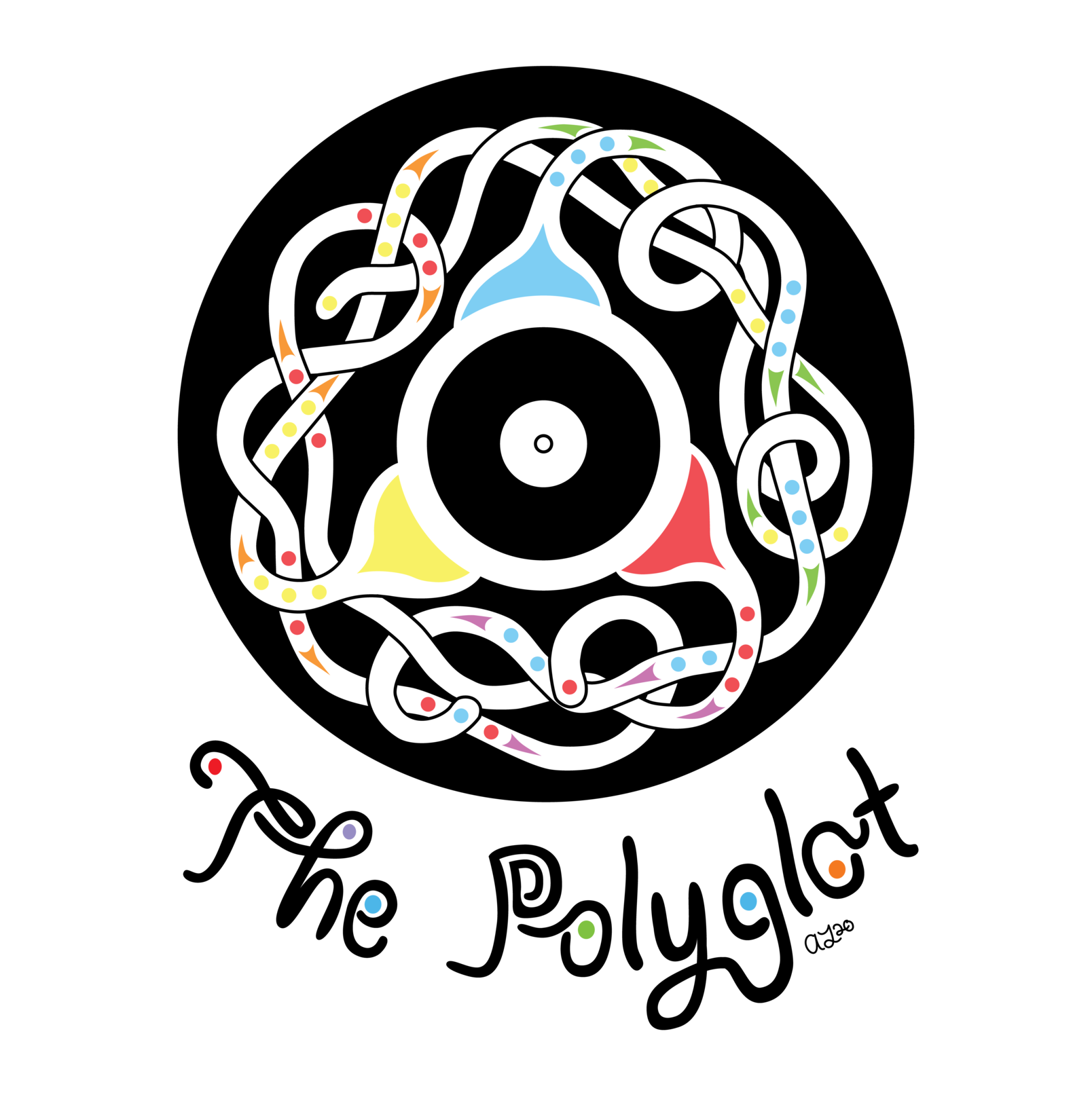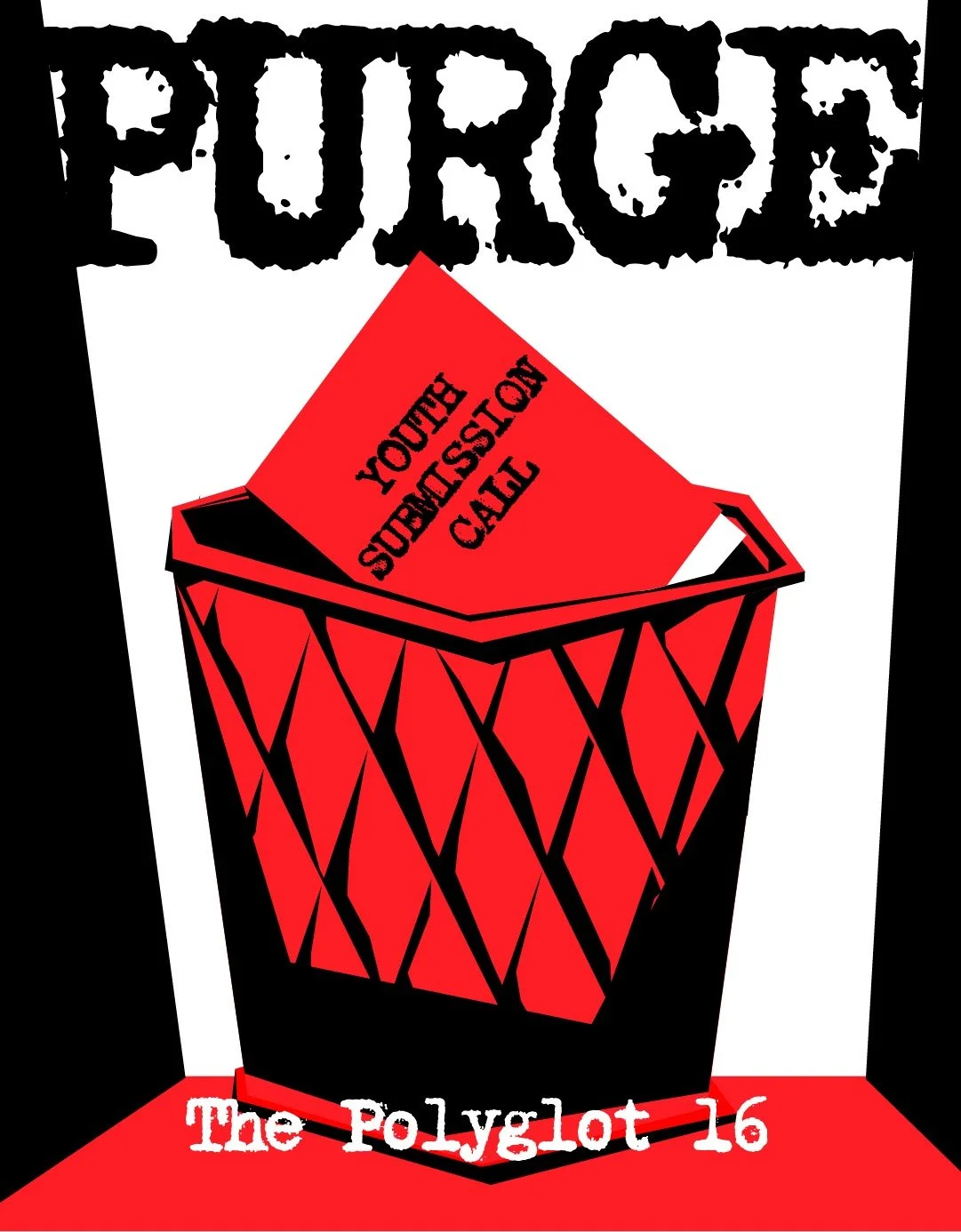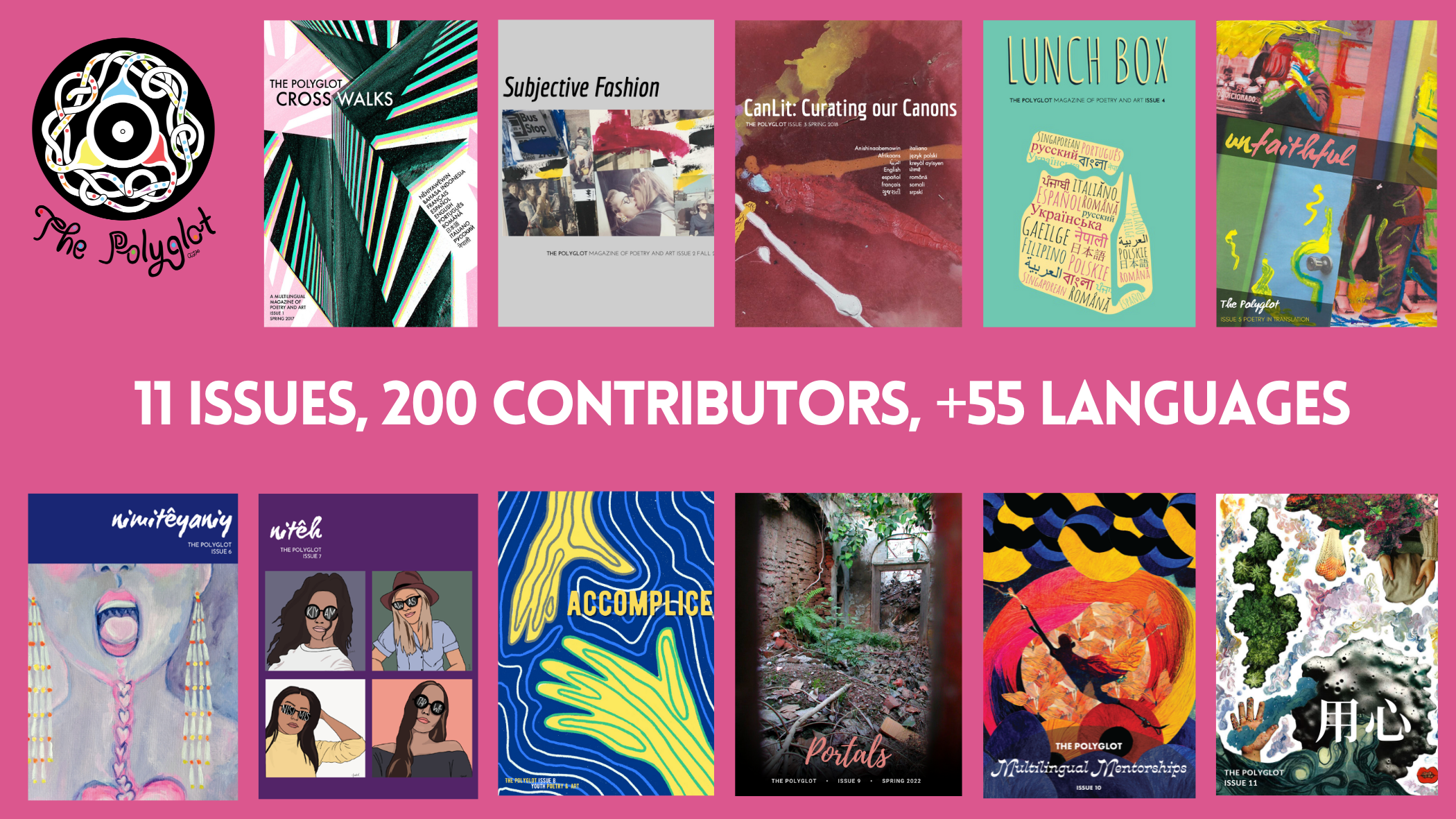CALL FOR SUBMISSIONS
Issue 16: Purge
Deadline: October 31, 2025
📣 Calling all youth (13–25 years old) around the world
The Polyglot is a multilingual magazine of literature and art based in Edmonton, Canada—and for this issue, our pages belong entirely to you.
All over the world and across generations, books, languages, and ways of speaking have been silenced, censored, or banned. We want your art and writing that explore censorship in all its forms—across borders, languages, and political contexts.
✨ Our magazine is open to all kinds of art! You can submit:
✍️ Multilingual poems, rants, micro-stories
🎨 Visuals, memes, doodles, screenshots, comics
🎧 Music, voice recordings, videos
🤯 Anything hybrid, weird, or untranslatable
Deadline: October 31, 2025
$40 CAD honorarium for every artist we publish
What is censorship? A Global Context
📚Maus by Art Spiegelman
📚The Handmaid’s Tale by Margaret Atwood
📚1984 and Animal Farm by George Orwell
📚Sozaboy by Ken Saro-Wiwa (written in Naijá Pidgin)
📚Borderlands/La Frontera by Gloria Anzaldúa (written in Spanglish)
📚The poetry of Ana Blandiana
📚The Bluest Eye by Toni Morrison
📚The Satanic Verses by Salman Rushdie
📚The Popol Vuh (written in K’iche’ Maya)
📚Americanah by Chimamanda Ngozi Adichie
📚The poetry of Mahmoud Darwish
What do these books have in common? At one point or another, they were all banned, censored, or suppressed in various countries—sometimes because of what they said, and sometimes because of the very language they were written in.
Not to mention the countless Indigenous oral stories and languages in Canada and around the world that were outlawed and silenced, leaving entire traditions at risk of disappearing.
Censorship is when someone in power (like a government, school, or even a family) tries to control what people can read, write, watch, or say. This can mean banning a book, canceling a show, blocking a website, erasing a language, or punishing people for speaking up.
💡 When you’re writing or making your art, think about:
Have you ever been told not to speak, read, or write in a certain way—or in a certain language?
Which censored or banned books, films, shows, stories, or traditions have influenced you?
Do you find yourself holding back or self-censoring because of school, family, or the political climate?
What does your real voice look like when no one’s policing it?
How do you remix languages, slang, and symbols to say what you need to say?
What do we mean by “Multilingual”?
Multilingualism in this issue goes beyond just different languages. It includes the diverse ways in which youth express themselves: code-switching, slang, swears, emojis, keysmashes, memes, made-up words, abbreviations, brain-rot lingo, inside-jokes, all caps RANTS, chat screenshots, comics, and other codes they use to carve out space for their own stories. We invite work that embodies the spirit of creative defiance, whether it’s written, spoken, visual, or performed.
By publishing in the voices and modes youth actually use, we resist the sanitizing impulse of censorship and insist that both education and literature can (and should) hold the messy, vibrant, polyphonic realities of youth culture today.
Submission Guidelines
Number of Submissions: You may submit up to 3 pieces total. This can include a combination of text (stories, poems, etc.), visual, and hybrid works that mix both pictures and words.
Literary Submissions: Your stories or poems can be in any language(s) or registers. We especially welcome work that embraces slang, hybrid forms, and multilingual play. All linguistic levels are encouraged to submit—whether you’re fluent, reconnecting with an Indigenous or heritage language, or experimenting with new ones. Submit your stories, poems, and more. No filters. No tone-policing. Just your words, your way. This issue is about pushing back: against censorship, against “proper” grammar, against being told what’s “appropriate", against purging books and knowledge.
Art Submissions: We welcome 1–3 artworks in any media, including photography, drawing, painting, digital art, memes, sculpture, video, music, dance, weaving, and traditional art forms. For visual art, please submit high-resolution JPEG or PNG files. For video or music submissions, please submit MP3 or MP4 files.
Cover Submissions: If you wish to submit cover art, please indicate that in your submission. No artist statement is required for cover art submissions.
Artist Statement: Along with your submission, please send us a short note (about 200 words). This is a chance for you to tell us more about your work. You could share how you created it, what inspired you, or why you chose the style or language(s) you used. You can also talk about how your piece connects to censorship (silencing) or resistance—like a story you weren’t “supposed” to tell, a language you’ve been told not to use, or a topic that feels risky but important. Think of it as a behind-the-scenes look at your art or writing, in your own words.
Biography: Please provide a brief biography (100 words). If you have a website or social media account for your creative work, you are welcome to include it here. Note: Sometimes, speaking or writing honestly can feel risky. If you want to share your story or art but feel safer not publishing using your real name, you can use a nickname, an initial for your first/last name, or a pseudonym—a made-up name an author chooses instead of their own. (For example, the famous novelist George Orwell was really named Eric Blair.) However, you do have to submit to The Polyglot using your real name.
Questions? Email us at thepolyglotmagazine@gmail.com or DM us on Instagram at @the.polyglot.magazine.



